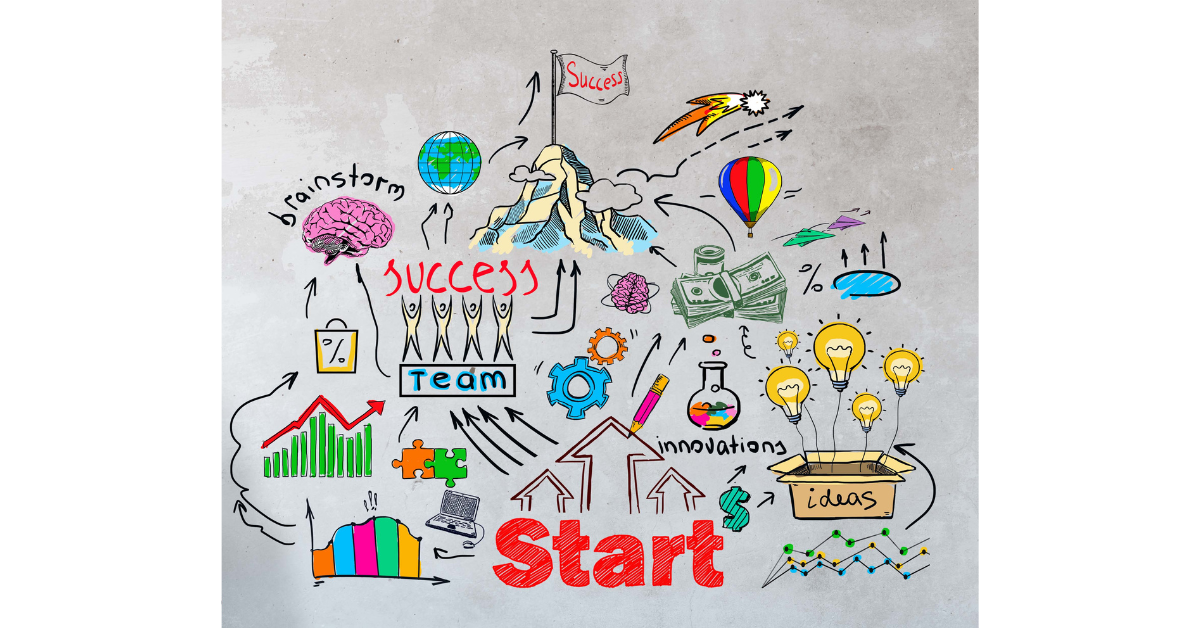When it comes to prepping, you are not alone. Thousands of like-minded individuals and families are preparing just in case disaster strikes or preparing for hyperinflation. You can rely on these people to create a prepper community and survive when sh*t hits the fan (SHTF).
There is a lot of value in a prepper community versus trying to survive as a lone wolf. Keep reading to learn about prepper communities, the value they can bring to your survival, and the different elements you will need to create your survival community, just in case SHTF.
What is a Prepper Community?

Prepper communities are groups of like-minded preppers who have entered into a social contract to prepare for and support one another in the event of an emergency or when SHTF. Emergencies that prepper communities prepare for include:
- Natural disasters, such as earthquakes, hurricanes, floods, and worst tornado in the us.
- Civil unrest and how to survive a riot or mobs
- Warfare, including how to survive a nuke and bombings
- Food shortages
Prepper communities have become more prevalent in prepping culture. This is because, when SHTF, you can rely on a team of people to survive instead of going into survival mode as a lone wolf.
Lone Wolf vs. Prepper Community
A lone wolf is someone who takes on a disaster scenario by themselves. Lone wolf preppers are highly-skilled individuals who have been preparing themselves to survive in a major disaster scenario. Typically, they have an evacuation plan and bug-out location, ample emergency food, best way to store water long term, ready in preparing for hyperinflation and other means for survival on their own.

The opposite of a lone wolf would be a survival community. Survival communities are groups of people who have agreed to work together and pool resources and skills in order to survive unprecedented disaster scenarios. Currently, survival communities in the USA are prepping for the worst possible scenario.
The advantage that prepper communities have over lone wolves is two-fold.
Consolidation of Efforts In a Community
In a survival community where you rely on other people beyond just yourself and your immediate family, you get to benefit from a consolidation of efforts. In other words, multiple people can contribute smaller amounts of work to achieve an outcome that benefits the entire prepper compound.
For example, you can more easily fortify your bug-out location with a group of preppers working in unison. You can consolidate your efforts to achieve an outcome that benefits everyone. On the other hand, lone wolves must accomplish the task alone, which will take much more time and energy.
Compounding Efforts
In a survival community, you also can benefit from compounding efforts. Compounding efforts is the idea that multiple people can accomplish exponentially more than fewer people. In other words, the whole of a survival community is greater than the sum of its individual preppers.
For example, suppose you need to relocate your emergency food buckets to a more secure location. In that case, you can do so more efficiently with a larger unified team instead of a handful of people or small families.
[product_render product-handle="45-serving-food-kit-special-offer"]
Not only do you have more hands, but you may also have resources like carts or wheelbarrows and additional eyes for security.
Building a Prepper Community
It’s not uncommon to feel like prepping is taboo. We’ve talked with many preppers who have been nervous to publicly discuss their prepping efforts. For that reason, many preppers are isolated from one another and sometimes struggle to find a prepper community.
However, we have found that the more you share about your prepping worldview, the more like-minded people you come across. Suddenly, a network of preppers comes out of the woodwork, and finding a survival community becomes easier.
How Do You Find a Survival Community?
When looking for survival, the best thing you can do is rely on your current relationships. Therefore, we recommend that you get to know the people around you. The best place to start is with your neighbors and extended family members, because in the event of an emergency, it’s the people closest to you that become the most essential.
We recommend that you:
- Host a meeting with neighbors or like-minded preppers.
- Share your reasons for prepping.
- Discuss the skills you can offer to the community.
- Convey the resources you’ve been preparing.
- Finally, begin to formulate roles within a team.
Building a Sense of Community Without a Prepper Compound
Building a sense of fellowship is vital to the success of your survival community. A close-knit group will always do better than a group that is distanced from one another, does not trust one another, or is constantly in conflict.
A sense of community has four components:
-
Membership: People value a sense of belonging and knowing who is in the community and who isn’t.
-
Influence:Every voice counts; when one speaks, the others listen and respect their opinion.
-
Fulfillment of needs:Individuals work together in the community to fulfill the entire group's needs.
- Emotional connection: Shared history, as well as shared participation and identification with that history, builds a sense of community and emotional attachment.
One of the most effective ways to build a sense of community is to highlight each individual's skills, and to create a clear outline of how everyone fits together in terms of how they are actively helping the group.
Defining Skills Needed in Your Community
A survival community is much better off when it’s compiled of individuals with diverse backgrounds and a wide set of skills. Typically, the more people you can bring together, the better, because of what they can each bring to the table regarding skills and resources.
First Responders
 First responders can be significant assets to a prepper community. They have a host of skills that can be useful in a disaster scenario.
First responders can be significant assets to a prepper community. They have a host of skills that can be useful in a disaster scenario.
- Police officers
- Firefighters
- Emergency Medical Technicians (EMT)
- Paramedics
Veterans or Current Military
Veterans and current military personnel can also bring valuable skills to your prepper community. Their expertise in high-stress scenarios, leadership, communication skills, and logistical outlook can benefit a prepper community when SHTF.
Homesteaders
Homesteading is a lifestyle of self-sufficiency. They often know the best places to live off the grid. Homesteaders’ lives are characterized by subsistence agriculture, animal husbandry, with best survival foods, small-scale textiles production, and other craftwork, along with other survival skills such as hunting, fishing, and trapping.
Scientists, Engineers, and Doctors
In a survival scenario, scientists, engineers, and doctors have crucial skills. These individuals are brilliant critical thinkers and problem solvers. They may be able to offer medical expertise, fix a broken machine, or advise on how to treat water to make it safe for human consumption.
How A Survival Community Operates During a SHTF Event
You never know when disaster may strike. Preparing for civil unrest, natural disasters, or nuclear war may seem far-fetched, but disasters like these pose real threats to our livelihoods. That is why it’s so important to be prepared for the unexpected and know how to operate when SHTF.
Ultimately, the success of a prepper community boils down to trust, unflinching teamwork, and a clear delegation of roles and responsibilities.
Survival Community Responsibilities
Once SHTF and you consolidate your team of preppers who have survived, the first thing you will need to do is delegate responsibilities. In an ideal scenario, you’ve already talked about these roles with your community members ahead of time.
Preparing in advance can be the difference that allows your prepper community to thrive and not just survive. Below you find some of the most critical roles every survival community should have.
Nutrition and Water Manager
Food and water are necessities for survival, but there’s more to it than just knowing where to find the freeze dried beef. If you do not have sufficient food and water, your prepper community will not survive for long, no matter how well organized. The nutrition and water managers in your community are responsible for answering questions such as:
- Where is our water coming from?
- How many people will need the water?
- How are we going to treat the water?
- Do we need to grow food?
- Do we need to procure food?
- Do we have enough food storage?
- Who is protecting the food?
The Medic
 In survival scenarios, it is not uncommon to deal with sickness and injuries. For that reason, your survival community must have a doctor or medic. However, when it comes to assigning the role of the medic, it’s essential to consider the following.
In survival scenarios, it is not uncommon to deal with sickness and injuries. For that reason, your survival community must have a doctor or medic. However, when it comes to assigning the role of the medic, it’s essential to consider the following.
- What is their background, and how well trained is your medic?
- Do they have the proper equipment, medicine, and skills?
- How many people are they taking care of?
- How can they train other members of the group?
The Mediator
SHTF events can be highly stressful. Because of the stress, there is bound to be conflict amongst team members or between two different survival communities. For that reason, having a mediator is essential. When selecting a mediator, we recommend you come up with answers to the following questions.
- Who can help settle disputes and mediate conflict?
- Who is well respected?
- Who commands attention when they walk into the room?
- Who can negotiate with outside prepper communities?
The Engineer
 During disaster scenarios, things break. And depending on the state of the world, it's probably safe to assume that no one is coming to fix it. For that reason, you will have to fix it yourself. That is why having an engineer in your prepper community can be invaluable. These individuals can repair essential equipment when it breaks. They may even be able to fabricate new equipment because purchasing new things in stores is unreliable.
During disaster scenarios, things break. And depending on the state of the world, it's probably safe to assume that no one is coming to fix it. For that reason, you will have to fix it yourself. That is why having an engineer in your prepper community can be invaluable. These individuals can repair essential equipment when it breaks. They may even be able to fabricate new equipment because purchasing new things in stores is unreliable.
- Who can fix broken things?
- Who is mechanically inclined?
- Who has experience with engineering, machinery, plumbing, and welding?
The Strategic Planner
Preparing for a disaster scenario takes a lot of work. Most expert preppers work year-round to slowly accumulate resources, learn new skills, and devise plans for various possible scenarios. But the strategic planning doesn’t stop after SHTF. To thrive and not just survive, your prepper community will need a strategic planner to stay ahead of the game and keep things organized. When designating a strategic planner position, consider the following.
- Who understands the organization of roles?
- Who can communicate their vision or plan for the group?
- Who understands project management?
- Who understands members’ strengths and weaknesses to organize the community?
Finishing Thoughts: There’s No Perfect Group
 When it comes to survival communities, there are no perfect groups. We are all humans, and humans make mistakes. Surviving in your prepper community will be hard work. To make it through, your community will have to focus on the following four assets:
When it comes to survival communities, there are no perfect groups. We are all humans, and humans make mistakes. Surviving in your prepper community will be hard work. To make it through, your community will have to focus on the following four assets:
-
Compromise and forgiveness:We all make mistakes. When an error is made, it's critical to apologize, forgive one another and move on. Unfortunately, after SHTF, the individuals in your prepper community might be all you have left, so holding grudges is not an option.
-
Take advice and take counsel from one another: We all have something to bring to the table. For that reason, in survival scenarios, it’s vital to take advice and counsel from each other. We need to remain humble in the aspects of life where we are not experts and allow those who know more to lead the way.
-
It’s a challenge, but it's worth the effort:The aftermath of a SHTF event will be ugly. It will create trials and tribulations that perhaps not even the most expert prepper could have prepared for. But the challenge of survival is worth it—it’s worth it to protect our family members or survival community and attempt to rebuild.
- Make sure you are a valuable asset:In a prepper community, there are many moving parts. In addition, there are important leadership roles and tasks to accomplish. Therefore, you need to ensure that you are participating and actively trying to be a valuable asset to the group.
When it comes to surviving a disaster scenario, we strongly believe in the value of a prepper community. In a group, you can pool necessary resources and rely on one another’s expertise and skills to not only survive, but thrive.
If you are just getting started with prepping, take a look at our prepping for beginners guide. If you have any questions or want to speak with an expert,




